Selection shapes diverse animal minds
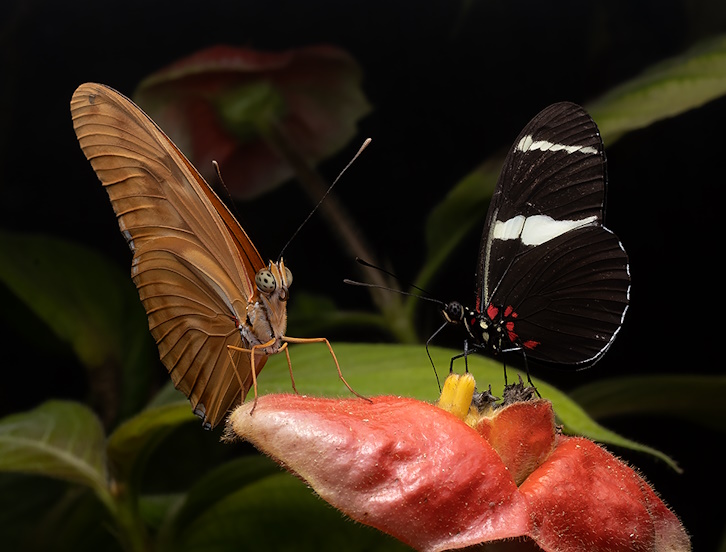
Theo Murphy meeting organised by Professor Elli Leadbeater and Professor Alex Thornton.
What are the evolutionary processes that have produced extraordinary cognitive diversity across the animal kingdom? New approaches, informed by evolutionary biology, neuroscience and psychology, are allowing us to elucidate how different aspects of cognition enhance survival and reproduction for species that live very different lives. This meeting will explore how natural selection customizes animal minds to maximise evolutionary success.
Philosophical Transactions B
Theo Murphy meeting issue ‘Selection shapes diverse animal minds’ organised and edited by Ellouise Leadbeater and Alex Thornton
Vol. 380, No. 1929, (June 2025) This issue is now available online.
Organisers
Schedule
Chair
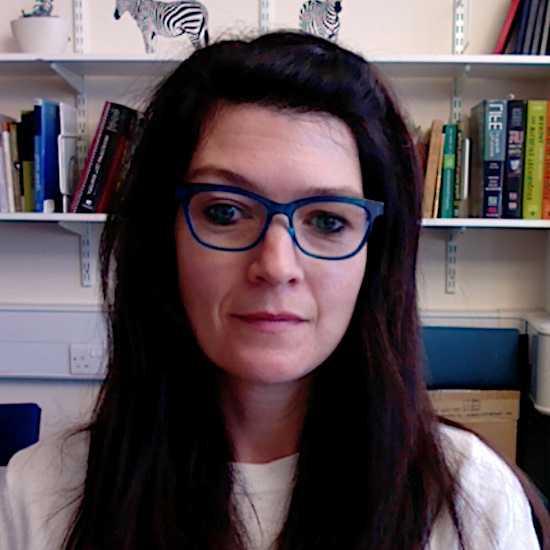
Professor Elli Leadbeater, Royal Holloway University of London, UK

Professor Elli Leadbeater, Royal Holloway University of London, UK
Elli's research centres around the ecology and evolution of social insects, and specifically the evolution of bee cognition. She is interested in how cognitive abilities have been shaped by natural selection to fit different ecological contexts, and also in how those same abilities function in the entirely novel environments presented by the Anthropocene. She is a Professor of Ecology and Evolution at Royal Holloway University of London, where she's been based for 10 years. Prior to that, she studied social wasp societies at the Institute of Zoology in London and the University of Sussex, having completed a PhD in bumblebee behaviour in 2008 at Queen Mary University of London. She is an ERC grantee and a former Leverhulme Early Career Fellowship holder, and was recently awarded the Scientific Medal of the Zoological Society of London.
| 09:00-09:10 |
Welcome by the Royal Society and lead organiser
|
|---|---|
| 09:10-09:35 |
A circuit view of evolving cognition
How animals perceive, process and respond to environmental cues is tightly tuned to the species-specific demands imposed by their ecology and life history. This specialisation is likely reflected in neural systems that support cognitive processes, as well as the behaviours expressed by those systems. In Heliconius butterflies the mushroom bodies - insect learning and memory centres - are significantly expanded relative to all other butterflies. Mushroom body expansion in Heliconius coincided with the evolution of a novel dietary shift towards active pollen feeding, and a spatial foraging behaviour, trap-lining, which is thought to require long-term spatial memory of visual scenes. I will discuss evidence that selection for trap-line foraging has reshaped Heliconius cognition along specific lines, reflected in both neuroanatomical specialisations and shifts in a restricted range of cognitive traits. By following the neural pathways that lead to and from the mushroom bodies, a mosaic pattern of neural adaptations is apparent, with shifts in cells and structures supporting visual and sparse coding within the mushroom body. Behavioural experiments closely mirror these changes, with improved performance in non-elemental learning and long-term memory in Heliconius, but specifically within a visual context. This provides a rare case where memory performance has been compared across species and sensory modalities, to identify a modality specific shift. These results are consistent with visual specialisation of the Heliconius mushroom body facilitating a specific enhancement of visual memory, likely due to the requirements of long-term foraging efficiency, and illustrate the precision with which selection can reshape animal cognition. Dr Stephen Montgomery, University of Bristol, UK
Dr Stephen Montgomery, University of Bristol, UKDr Montgomery's primary interests are focused around how brains and behaviour evolve. He did his PhD on primate brain evolution with Dr Nick Mundy, at the University of Cambridge, and then held a series of fellowships at Oxford and UCL, with Professor Judith Mank, before returning to Cambridge to establish his own group. He is currently a Senior Research Fellow, funded by a NERC Fellowship and an ERC Starter Grant, and Proleptic Senior Lecturer at the School of Biological Sciences, University of Bristol. His group is interested in how brains adapt to different environments, how changes in brain structure produce behavioural differences, and how selection navigates developmental and functional constraints that may limit or channel the adaptive response. They take a comparative approach to tackling these questions, comparing molecular and phenotypic data across species. |
| 09:35-09:50 |
Discussion
|
| 09:50-10:15 |
Sequences and animal intelligence
The world is full of opportunities that organisms can potentially exploit through productive behaviour. However, there are different ideas about what mental capacities underlie productive behaviour, and how they are distributed across the animal kingdom. Here, focusing on sequential aspects of cognition and behaviour, we explore discrepancies between ideas about animal intelligence and recent research on how birds and non-human mammals recognize and remember sequential information. We note that our understanding of animal working memory is not well aligned with many ideas related to mental flexibility in non-human animals. We also look into whether processing stimulus sequences is required for performing behaviour sequences, and conclude that animals can execute such sequences without faithful sequence representations. Finally, we will discuss the evolutionary rationale behind these insights and their implications for the evolution of animal intelligence. 
Senior Associate Professor Johan Lind, Linköping University, Sweden

Senior Associate Professor Johan Lind, Linköping University, SwedenJohan Lind is senior associate professor in ethology at the biology division, Linköping University, Sweden, and the deputy director of the Centre for Cultural Evolution at Stockholm University, Sweden. He held a post doc fellowship at St Andrews University, UK, and during autumn 2019 he was a visiting fellow at Cambridge University, UK, as a guest to the Centre for Future Intelligence. His research includes mechanisms and evolution of behaviour and culture. He recently published the book "The Human Evolutionary Transition: On the differences between humans and other animals" (Enquist, Ghirlanda & Lind, Princeton University Press, 2023). |
| 10:15-10:30 |
Discussion
|
| 10:30-10:50 |
Break
|
| 10:50-11:15 |
Lost in translation: are psychological concepts really species-neutral?
Work in comparative psychology and animal cognition assumes evolutionary—and hence psychological—continuity across the animal kingdom. The implicit assumption here is that it is possible to identify psychological phenomena in ways that are entirely species-neutral, and which allow us to map similarities and differences within and across different taxa. This assessment draws on psychological theories and capacities that have been, for the most part, derived from the study of our own species. If, however, human psychological capacities are “entangled”, in the philosopher, Alva Noë’s, sense, then we may be chasing a chimera. All is not lost, however, if we pare away the superficial and superfluous layers of human-flavoured intellectual coating that, ironically, are used to generate a sense of deep continuity. First and foremost, this entails recognising that evolution is not just about continuity but is also a diversity-generating process. Taking this on board allows us to generate a psychological landscape that can be explored very profitably by considering a more diverse range of theoretical frameworks in cognitive science. Using examples drawn from studies of memory and self-control, as well as recent work in neuroscience and brain evolution, I offer a view that may allow us to generate a better kind of continuity. 
Professor Louise Barrett, University of Lethbridge, Canada

Professor Louise Barrett, University of Lethbridge, CanadaLouise Barrett was trained as an ecologist and anthropologist at University College London, UK. Following her PhD, Barrett took up a Postdoctoral Fellowship at the University of KwaZulu Natal, before returning to increasingly senior posts in the UK, and a Leverhulme Trust Research Fellowship. In 2007 she moved to the University of Lethbridge, where she is Professor of Psychology and Canada Research Chair (Tier I) in Evolution, Cognition and Behaviour. She has run two long-term field studies on baboons and vervet monkeys in South Africa, that have explored the complexities of social life and its potential links to the evolution of brain size and social intelligence. She studies the latter through the application of theories of embodied and inactive cognition. She is the author of Beyond the Brain: How Body and Environment Shape Animal and Human Minds. |
| 11:15-11:30 |
Discussion
|
| 11:30-11:55 |
Social drivers of cognitive evolution: the importance of strategic decisions
The challenges of social life have long been seen as key drivers of cognitive evolution. However, research has tended to focus on identifying human-like socio-cognitive traits in other animals while the fundamental question of whether and how animals benefit from making strategic social decisions has received relatively little attention. Here, we use automated field experiments to test whether wild jackdaws benefit from tracking information within dynamic social environments. For instance, while close proximity to other individuals can generate conflict, tolerating their presence may provide access to information or resources, so individuals may benefit from adjusting their tolerance in response to changing conditions. Accordingly, in an experiment where juveniles became valuable sources of information, we found that adults learned to increase their tolerance of juveniles and reduce aggressive displacements. This shows that jackdaws can adjust their information-use strategies to exploit new opportunities, in much the same way as the digital revolution has encouraged older people to learn from the youth. In a separate experiment, we find that jackdaws also modify their dyadic associations to interact preferentially with individuals that provide greater social foraging benefits. However, individuals in stable, long-term relationships maintained their associations regardless of the short-term benefits of strategic re-adjustment. This highlights a vital trade-off: investing in long-term bonds comes at the cost of missing out on benefits of wider social plasticity. We argue that understanding how animals manage trade-offs associated with different relationships is crucial to understand how sociality and cognition co-evolve. 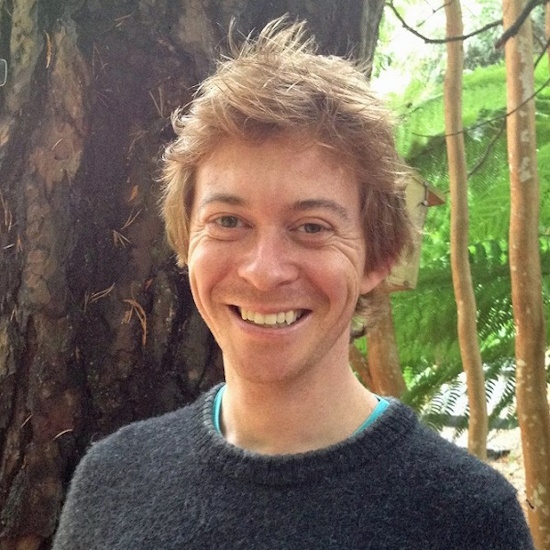
Professor Alex Thornton, University of Exeter, UK

Professor Alex Thornton, University of Exeter, UKAlex Thornton is a Professor of Cognitive Evolution at the University of Exeter (Cornwall Campus), where he runs the Wild Cognition Research Group. His work seeks to understand how the challenges faced by animals in their natural environments shape their mental processes, how the ability to learn from others affects the behaviour of individuals and groups, and how culture itself evolves. His research incorporates approaches from evolutionary biology, psychology and anthropology using a range of different study systems. Current research focuses primarily on cognition and behaviour in wild jackdaws, the cognitive requirements of human culture and the application of cognitive research in conservation. |
| 11:55-12:10 |
Discussion
|
| 12:10-12:35 |
Spatial memory in the real world: its contribution to home ranges, predation and survival
A recent development in understanding the evolution of cognition has been to adopt a within-species Behavioural Ecology Approach (BEA) in which individual differences in specific or general cognitive abilities are assayed, their role in shaping particular behaviours is assumed or demonstrated, and the fitness consequences of these differences are tracked. Cognitive abilities that correlate with fitness benefits are considered to be selected for and thus their evolution explained. Whilst intuitive, this approach raises questions about how different cognitive abilities are related to one another; how a cognitive ability, or suite of cognitive abilities, is (or are) linked to a behaviour, or a set of behaviours; and how selection feeds back to the cognitive and neural mechanisms underlying the behaviours. We propose a series of cartoon models that may depict these links. We then consider the implications for each model for our understanding of how cognitive abilities might evolve. This also allows us to derive a series of predictions about what sorts of relationships we might expect to see between measures of cognition and fitness if a particular model operates. We review existing studies that use the BEA to understand the evolution of cognition and examine which, if any, of the predictions are supported and thus which model(s) might operate. We recommend that future research adopting a BEA clearly specify their assumed model of linkage between particular cognitive abilities, the behaviour of interest and the fitness consequence, and interpret their findings in light of this assumed model. 
Dr Joah Madden, University of Exeter, UK

Dr Joah Madden, University of Exeter, UKDr Madden works in the Centre for Research in Animal Behaviour at the University of Exeter. They started working on questions about sexual selection and mate choice, using spotted bowerbirds as a model system, before working on communication, conflict and cooperation in brood parasites and meerkats. They moved to the Department of Psychology, Exeter, in 2007 and since then they have been increasingly drawn to try to understand how selection may act on cognitive abilities that underpin natural behaviours. Dr Madden has used a within-species approach where they measure individual differences and explore resulting fitness consequences. They find this especially interesting when considering that the same (sets of) abilities may contribute to a disparate set of behaviours, raising the potential for conflicting selection pressures, and when considering why exaggeration of these abilities may not always be beneficial. Dr Madden has used a range of systems to ask these questions, with a recent focus on the genius of the bird world, the pheasant. |
| 12:35-12:50 |
Discussion
|
Chair

Professor Alex Thornton, University of Exeter, UK

Professor Alex Thornton, University of Exeter, UK
Alex Thornton is a Professor of Cognitive Evolution at the University of Exeter (Cornwall Campus), where he runs the Wild Cognition Research Group. His work seeks to understand how the challenges faced by animals in their natural environments shape their mental processes, how the ability to learn from others affects the behaviour of individuals and groups, and how culture itself evolves. His research incorporates approaches from evolutionary biology, psychology and anthropology using a range of different study systems. Current research focuses primarily on cognition and behaviour in wild jackdaws, the cognitive requirements of human culture and the application of cognitive research in conservation.
| 14:00-14:25 |
Ecology and the value of memory for foraging insects

Professor Elli Leadbeater, Royal Holloway University of London, UK

Professor Elli Leadbeater, Royal Holloway University of London, UKElli's research centres around the ecology and evolution of social insects, and specifically the evolution of bee cognition. She is interested in how cognitive abilities have been shaped by natural selection to fit different ecological contexts, and also in how those same abilities function in the entirely novel environments presented by the Anthropocene. She is a Professor of Ecology and Evolution at Royal Holloway University of London, where she's been based for 10 years. Prior to that, she studied social wasp societies at the Institute of Zoology in London and the University of Sussex, having completed a PhD in bumblebee behaviour in 2008 at Queen Mary University of London. She is an ERC grantee and a former Leverhulme Early Career Fellowship holder, and was recently awarded the Scientific Medal of the Zoological Society of London. |
|---|---|
| 14:25-14:40 |
Discussion
|
| 14:40-15:05 |
Spandrel brain? Human brain expansion as a means to another end
The human brain is thought to be exceptionally adaptive. It has enabled us to control our environments and to thrive across the planet and beyond, with little indication that the human brain has exhausted its reach. The human brain's perceived adaptive nature and immense complexity have long made natural selection the only credible explanation for why it evolved. Despite this, I describe modelling results that find that the human brain size may not have evolved due to direct selection for it, but due to changes in developmental constraints. I explain how human brain expansion arises in this model as a side-effect of selection for increased ovarian follicle numbers and their genetic correlation with brain size, a correlation generated by development under a challenging ecology and seemingly cumulative culture. These results raise the intriguing possibility that the large human brain size is a spandrel rather than an adaptation and warn against persistent practices of considering adaptiveness or directional evolution as always caused by direct selection. I discuss challenges of establishing selection pressures with model-less empirical data, particularly regarding hominin brain size evolution, and how a modelling approach integrated with empirical data offers a way forward. I further discuss how modelling approaches may be used in the future not just to determine why the human brain could have evolved but to address why it actually did. 
Dr Mauricio González-Forero, University of St Andrews, UK

Dr Mauricio González-Forero, University of St Andrews, UKDr González-Forero earned a BSc in Biology with a minor in mathematics at the University of Antioquia, Medellín, Colombia, in 2006. They then completed a PhD in Ecology and Evolutionary Biology in 2013 at the University of Tennessee, Knoxville, USA, supervised by Sergey Gavrilets. They subsequently did a 3-year postdoc at the University of Lausanne, supervised by Laurent Lehmann, where they formulated a mathematical model of brain life-history evolution. They then received a Marie Skłodowska-Curie Fellowship to work at the University of St Andrews, UK, supervised by Andy Gardner, to use the brain model to assess the ecological and social brain hypotheses for human brain size evolution. They have since remained at St Andrews formulating a mathematical synthesis of development and evolution to model the evolutionary and developmental dynamics of human brain size. |
| 15:05-15:20 |
Discussion
|
| 15:20-15:40 |
Break
|
| 15:40-16:05 |
Mutational origins and selection dynamics of cognitive traits in animals
Despite the many challenges in measuring and quantifying cognition, it is nevertheless clear that cognitive abilities evolve, often due to natural selection. How does this process unfold? Is cognitive evolution rapid or slow? How strong is selection on cognition? Does it mostly depend on standing genetic variation or require populations to wait for beneficial mutations to arise? Answering these questions will provide novel insights into the mode and tempo of cognitive evolution. At stake is understanding whether species’ cognitive abilities are limited by their mutational potential or simply by the selective benefits of cognitive traits. Here, I provide an overview of our empirical work investigating the evolution of individual facial recognition in the paper wasp Polistes fuscatus. Population genomic analyses of paper wasps show that much of the strongest and most recent selective sweeps in these wasps have been targeted toward loci involved in learning, memory, and vision, all traits related to individual recognition. Critically, selection in other species and populations of paper wasps that lack individual recognition do not show a similar pattern of recent selection. Additionally, genes that are differentially expressed during social interactions are over-represented among those under strong selection. Selective sweeps are derived from a combination of both standing variation and de novo mutations in P. fuscatus, suggesting that the evolution of novel cognitive traits, such as individual recognition in P. fuscatus, may be at least partially mutation limited. Approaches for examining the mode and temp of cognitive evolution across taxa are discussed. 
Dr Michael Sheehan, Cornell University, USA

Dr Michael Sheehan, Cornell University, USAMichael Sheehan is an Associate Professor and Director of Graduate Studies in Neurobiology and Behavior at Cornell University, where he started as an Assistant Professor in 2015. His lab studies the evolution and consequences of social behaviour and cognition, especially as it relates to social recognition, using both paper wasps and house mice as empirical models. His work combines field studies, evolutionary analyses, physiology, neural recordings, as well as population and functional genomics to gain an integrated understanding of social behaviour and cognition. |
| 16:05-16:20 |
Discussion
|
| 16:20-16:45 |
Demonstrating reproductive consequences of cognition
Reproductive success and its consequences for fitness are key to determining the role of natural selection in shaping cognitive abilities, and thus the all-important drivers for how and why cognition might change over evolutionary time. Demonstrating reproductive costs or benefits due to variation in cognitive ability, however, is hugely challenging. In some part this is because body size and body condition make the largest contribution to reproductive success, our ability to discriminate whether ‘being smart’ plays a role in fitness is already limited. Additionally, for many animals there is a multiplicity of ways to solve problems, only some of which will depend on their cognitive abilities. Escaping a predator, defending a food cache, or facing down a rival, for example, probably depend on energy levels, motivation, and morphological attributes. However, there may be specific instances in which key parts of animal’s life depend heavily, perhaps entirely on their cognitive abilities, and without them, the animal either won’t survive, or won’t get to reproduction. Retrieving food caches seems to be one example, and evidence from nest building suggests that this might be another. In the first, a specific cognitive ability (i.e. spatial memory) is key, while for nest building the pertinent ability is ‘experience’. Builders associate features of building, including material form and function, with consequent reproductive success. Until we can identify the specific cognitive abilities involved, perhaps ‘experience’ could also be used as a proxy in other contexts? If so, this might allow data collection in the field, and even in experiments that do not explicitly address cognition. 
Professor Sue Healy, University of St Andrews, UK

Professor Sue Healy, University of St Andrews, UKFrom an undergraduate degree from Otago, New Zealand through a DPhil at Oxford on the behavioural and neural bases of food storing in birds, Sue has geographically moved steadily north in the UK, via Newcastle (Psychology) and Edinburgh (Evolutionary Biology) to St Andrews where she is now in the School of Biology. Her questions on animal cognition are addressed to testing spatial abilities in wild, free-living hummingbirds in the Rocky Mountains, and nest building in birds, in the lab and the field. With an interest in the evolution of the brain, she also examines the neural and hormonal bases of cognition where possible. |
| 16:45-17:00 |
Discussion
|
| 17:00-18:15 |
Poster session
|
Chair

Professor Elli Leadbeater, Royal Holloway University of London, UK

Professor Elli Leadbeater, Royal Holloway University of London, UK
Elli's research centres around the ecology and evolution of social insects, and specifically the evolution of bee cognition. She is interested in how cognitive abilities have been shaped by natural selection to fit different ecological contexts, and also in how those same abilities function in the entirely novel environments presented by the Anthropocene. She is a Professor of Ecology and Evolution at Royal Holloway University of London, where she's been based for 10 years. Prior to that, she studied social wasp societies at the Institute of Zoology in London and the University of Sussex, having completed a PhD in bumblebee behaviour in 2008 at Queen Mary University of London. She is an ERC grantee and a former Leverhulme Early Career Fellowship holder, and was recently awarded the Scientific Medal of the Zoological Society of London.
| 09:00-09:25 |
Cognitive evolution: the mechanisms may be simple but their fine-turning may not be
The evolution of cognition is frequently discussed as the evolution of cognitive abilities or the evolution of some neuronal structures in the brain. Yet, such cognitive traits or abilities can be quite complex and are usually not coded by single mutations. Therefore, to understand their evolution one should explain how they could have gradually evolved through selection on heritable variation in simpler cognitive mechanisms. With this in mind, and in light of a previously proposed theory and recent research in my group, I will use a few examples of well-studied cognitive abilities in animals to demonstrate how their evolution and diversification may be captured in terms of fine-tuning of learning mechanisms to different ecological conditions. Furthermore, I will claim that selection for achieving this adaptive fine-tuning may be stronger than selection for what is generally viewed as increasing cognitive abilities or general intelligence. Professor Arnon Lotem, TAU
Professor Arnon Lotem, TAUArnon Lotem’s research combines theoretical and experimental work on the interface between Behaviour, Ecology and Evolution with a special focus on learning, decision making, and cognitive evolution. He obtained his PhD at Tel-Aviv University (1992, with Amotz Zahavi) and did his Postdoctoral research at the University of British Columbia with Jamie Smith (1992-1994, Killam and NSERC Fellow). In 1994 he received the Alon Fellowship, and is since a faculty member at the School of Zoology of TAU, where he served as the school head for the past four years. He is currently the Norman and Rose Lederer Chair of Biology. |
|---|---|
| 09:25-09:40 |
Discussion
|
| 09:40-10:05 |
Selection on cognition: the power of an integrative approach
Biological diversity arises from both historical and current processes. To understand how natural selection has shaped the extraordinary cognitive diversity seen across the animal kingdom, we need an integrative approach that combines contemporary (prospective) and historical (retrospective) perspectives. These complementary approaches can inform each other, and provide predictions that can be tested against one another. An evolutionary hypothesis gains credibility when both historical and contemporary evidence support it. When discrepancies arise, they can point toward additional factors or overlooked mechanisms that require further exploration. Although both prospective and retrospective approaches have their own limitations, and are currently insufficiently integrated in cognitive studies, combining them offers a more comprehensive view of the evolutionary diversification of the mind. 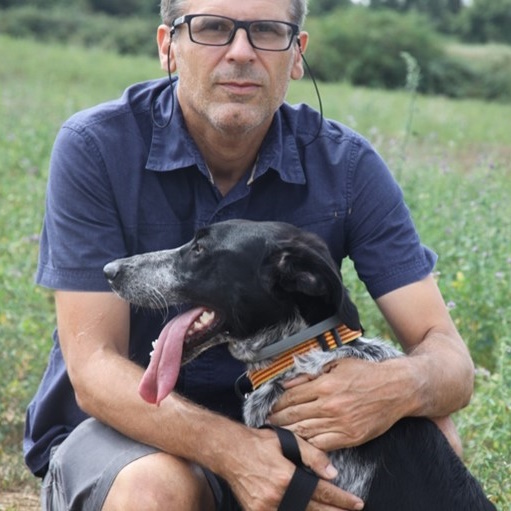
Professor Daniel Sol, IBE, Spain

Professor Daniel Sol, IBE, SpainDaniel Sol (PhD, University of Barcelona, 2000) is a CSIC Research Professor at the Institute of Evolutionary Biology (IBE) in Barcelona, with broad interests in ecology and evolution. Sol’s research program integrates theoretical modelling, field studies, experiments and comparative approaches to understand the causes and consequences of biodiversity change under global change. This research has contributed to develop the 'cognitive buffer hypothesis', a more general life history theory for demographic responses to environmental changes, and improved global estimations of biodiversity loss. |
| 10:05-10:20 |
Discussion
|
| 10:20-10:40 |
Break
|
| 10:40-11:05 |
The primate origins of complex cognition
The origins of the human mind have long been a puzzle for biologists and psychologists, in part because human cognition is marked by a distinctive suite of multiple traits spanning flexible decision-making, high levels of cognitive control, and exacerbated social reasoning capacities. What are the evolutionary building blocks of these cognitive abilities in other animals, and why do such forms of complex cognition emerge in some species but not others? I will present research examining patterns of value-based decision making, executive functions, and components of theory of mind across several primate species that vary in their socioecology and life history characteristics. I will use this data to test hypotheses about the evolutionary processes shaping these skills, with a specific focus on the role of social complexity versus ecological complexity in explaining variation in these traits. While social complexity has predominated as an explanation for primate cognitive evolution, these findings suggest that ecological niche can also play an important role in shaping cognition. As such, cognition may evolve in a mosaic pattern, with different evolutionary processes shaping different domains of cognition. More generally, this comparative approach aims to understand why different facets of ‘intelligent’ behaviour emerge across species, including in our own evolutionary history. 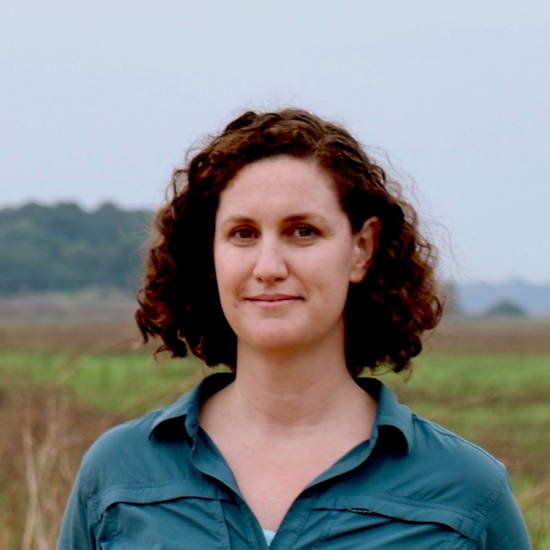
Dr Alexandra Rosati, University of Michigan, USA

Dr Alexandra Rosati, University of Michigan, USAAlexandra Rosati received an AB in Psychology from Harvard University, a PhD in Evolutionary Anthropology from Duke University, and completed a postdoctoral fellowship at Yale University. She is currently an Associate Professor of Psychology and Anthropology at the University of Michigan. Dr Rosati’s research examines the evolutionary origins of the human mind through comparative studies of cognition and behaviour in other primates. Her work focuses on the emergence of capacities for complex decision-making and social cognition, examining how different species think and solve important problems in their social and physical environment. Her research is supported by the National Science Foundation, the National Institutes of Health, and the Leakey Foundation. She has been recognized with an Alfred P. Sloan Foundation Research Fellowship, an NSF CAREER award, and the American Psychological Association’s Award for Early Career Contributions to Psychology. |
| 11:05-11:20 |
Discussion
|
| 11:20-11:45 |
Simple minds yet profound insights: nematodes and fruitflies in the service of evolutionary ecology of cognition
Model organisms such as Caenorhabditis nematodes and Drosophila fruit flies provide powerful systems for studying the evolutionary processes that shape cognition. The advantages of these organisms stem from their well-characterised biology and their amenability to the experimental evolution approach and genetic manipulations. Through controlled manipulations across multiple generations, experimental evolution enables the direct observation of evolutionary changes in cognitive traits. Complementing this method, genetic manipulations facilitate the targeted dissection of specific genes and pathways that underpin cognitive function. In my presentation, I will outline the fundamental principles of experimental evolution, exploring its strengths, limitations, and relationship to other research approaches. Drawing on examples from my own research, I will demonstrate how experimental evolution and genetic manipulations, in conjunction with life-history and behavioural assays, advance our understanding of cognitive ecology. Specifically, I will focus on critical insights regarding 1) the genetic architecture of cognitive traits, including their heritability; 2) the selective costs and benefits of these traits; and 3) the specific selection pressures on these traits, with an emphasis on sex-specific selection—that is, selection that differs between males and females. I will conclude by highlighting future research opportunities that arise from integrating theoretical predictions about evolution under environmental change with time-series analyses of experimental evolution data, and advanced genomic techniques. 
Dr Martyna Zwoinska, Uppsala University, Sweden

Dr Martyna Zwoinska, Uppsala University, SwedenMartyna Zwoinska is an evolutionary biologist with a PhD from Uppsala University. Her research began with an exploration of the connections between the evolution of cognitive and life-history traits, such as lifespan and reproduction. For this purpose, she utilised relatively unassuming organisms like Caenorhabditis nematode worms and Drosophila fruit flies. Despite their apparent simplicity, these model organisms offered the advantage of employing a powerful approach of experimental evolution, whereby organisms evolve over multiple generations under conditions imposed by the experimenter. Thereafter, Martyna has focused on the genomic aspects of adaptation, and in particular on the selective forces that maintain genetic variation in populations. This has included the study of evolution under temporally varying environments, with special emphasis on the interplay between genetic adaptation and plastic, environmentally-induced responses like learning and other cognitive traits. |
| 11:45-12:00 |
Discussion
|
| 12:00-12:25 |
The fish challenge to vertebrate cognitive evolution
There is tremendous variation in vertebrate brain size, shape, and structure across species and taxa. While many studies aim at identifying the ecological factors, both social and environmental, that may explain brain size variation within taxa, a more fundamental divide exists between endotherm and ectotherm vertebrates. Ectotherm vertebrates have brains that are, on average, ten times smaller than those of endotherms (mammals and birds). The existing hypotheses cannot explain this divide, as some endotherm species with relatively simpler social organization and diets than ectotherms still possess much larger brains. Furthermore, experiments and observations demonstrate that at least fishes possess a cognitive "tool kit" equivalent to that of many endotherms. We refer to this as the “fish challenge to vertebrate cognitive evolution”. We review hypothesised causes and consequences of brain size differences to propose two solutions to the “fish challenge”. First, the fish brain achieves modularity at a lower cost, but it is less efficient in problem-solving than an endothermic brain with domain-general organization. Second, the variation in brain size can be better explained by the variation in perception and motor skills rather than by variation in cognitive processes. In that case, the classical definition of cognition would need to be broadened. More specifically, it would be fitting to define animal cognition as how animals take in and process sensory information before deciding how to act on it with motor competencies. 
Dr Zegni Triki, University of Bern, Switzerland

Dr Zegni Triki, University of Bern, SwitzerlandZegni Triki is a veterinary surgeon by training. She practised as a veterinarian in rural Algeria for a few years before switching to academia and moving to Switzerland. Zegni completed a master's and PhD in biology at the University of Neuchatel in Switzerland, where she studied the mechanisms underlying fish behaviour and cognition in varying ecologies. With the support of a fellowship from the Swiss Science Foundation, Zegni moved to Sweden for a postdoc. Since 2022, she has been leading her research group at the University of Bern in Switzerland, using cichlid fish as the primary study model organism. Zegni’s research group is currently conducting experiments that integrate animal physiology, neurobiology, endocrinology, ecology, and life history to understand the variation in cognitive performance among individuals and ultimately, the evolution of cognitive abilities. |
| 12:25-12:40 |
Discussion
|
Chair

Professor Alex Thornton, University of Exeter, UK

Professor Alex Thornton, University of Exeter, UK
Alex Thornton is a Professor of Cognitive Evolution at the University of Exeter (Cornwall Campus), where he runs the Wild Cognition Research Group. His work seeks to understand how the challenges faced by animals in their natural environments shape their mental processes, how the ability to learn from others affects the behaviour of individuals and groups, and how culture itself evolves. His research incorporates approaches from evolutionary biology, psychology and anthropology using a range of different study systems. Current research focuses primarily on cognition and behaviour in wild jackdaws, the cognitive requirements of human culture and the application of cognitive research in conservation.
| 13:40-14:05 |
Interactions of experimentally evolved bias and learning
Patterns of environmental change and of fixity influence when learning and when unlearned biases should evolve. A deep theoretical literature addresses these aspects of change in both the evolution and adaptive function of learning. Less attention is paid to the evolution of innate bias, which is assumed to evolve easily in fixed environment. However, this isn’t always the case. I describe the results from a large experimental evolution study in fruit flies where we test predictions from theory about when learning and when innate bias should evolve. We factorially manipulated levels of the reliability of the stimuli available for learning and the certainty with which a given behaviour predicts fitness. We find that innate bias evolves over larger areas of theoretical space than learning, and that innate bias interacts with learning. Using gene expression, we find that some of the mechanisms underlying the two types of evolved bias in this study vary, and that they differentially influence learning. Finally, I will describe results from a series of studies on how experimentally evolved bias interacts with learning and decision making across behavioural contexts. We find that innate bias influences aspects of patch use in foraging and the decisions females make about their evolved bias under the risk of predation. Finally, we directly address the potential interaction of bias and learning in an experiment testing how stimuli with an evolved bias might overshadow other potential stimuli in flies learning where to lay eggs. 
Dr Aimee Dunlap, University of Missouri St Louis, USA

Dr Aimee Dunlap, University of Missouri St Louis, USAAimee Dunlap is an Associate Professor of Biology and Co-Director of the Whitney R. Harris World Ecology Center at the University of Missouri in Saint Louis, Missouri. Her research focuses on the evolutionary ecology of learning and decision making in changing environments. This work spans time scales from multiple generations in laboratory experimental evolution to single foraging bouts in lab-based studies with flies and bees, as well as spatial scales in the field across urban gradients and other anthropogenically altered habitats. She received a BS in Biology and a BA in History and English from the University of Memphis, a MS from Northern Arizona University and a PhD from the University of Minnesota as a fellow with the Center for Cognitive Sciences. |
|---|---|
| 14:05-14:20 |
Discussion
|
| 14:20-14:45 |
Levels of analysis? Sensorimotor competencies, life histories, conserved computational motifs and developmental linkages together generate brain organization
Research on the evolution of species differences in cognition and related brain organization generally compares the cognitive and neural correlates of specified sensorimotor capacities, environments and their interactions in extant species. Here we examine the neural outcomes of a large-scale environmental transition in evolution, the vertebrate emergence from water to land. Different information is highlighted by this approach. First, the biophysics of the energetic and sensorimotor affordances and constraints of the two realms must be described. Second, change in brain structures must be considered in light of how best to exploit new resources and conform to new constraints. Professor Barbara L Finlay, Cornell University, USA
Professor Barbara L Finlay, Cornell University, USABarbara L Finlay is the W.R. Kenan Jr. Professor of Psychology Emerita (fewer committees, more research!) at Cornell University. She is the co-editor, with Paul Bloom, of Behavioral and Brain Sciences, a forum for the communication, criticism, stimulation, and particularly the unification of research in behavioral and brain sciences from molecular neurobiology to the philosophy of the mind. She received her Ph.D. from the department of Brain and Cognitive Sciences at MIT in 1976, her training integrating primate sensory physiology and developmental neurobiology. Moving directly to Cornell University, she found an intellectual home among its eclectic thinkers including James and Eleanor Gibson in perception and development, Dick Neisser in Cognitive Science and Bob Capranica in neuroethology, and was chair of the Department of Psychology from 1995-2001. Over that time, she has had visiting appointments in Oxford University, the University of New South Wales, INSERM, the Federal University of Parà, Brazil, the University of Western Australia, “Wiko” in Berlin, Birkbeck College of the University of London, and most recently the Institute for Advanced Research in Shanghai. Her research was in evo-devo before it had its name, first examining how early neuron overproduction and death, and early axonal exuberance might support brain adaptation and evolution. More recently she has focused on what aspects of neurodevelopmental timing can be altered in evolution (www.translatingtime.org ), and how conserved elements of neural development support graceful scaling and progressively change brain function when brain size increases. Presently, she has expanded this interest in neurodevelopmental timing to include alteration in life histories over the lifespan, especially care-taking and care-seeking. This last interest requires new attention to motivation and emotion, and to the evolution of pain perception and expression to be explored at this conference. |
| 14:45-15:00 |
Discussion
|
| 15:00-15:30 |
Break
|
| 15:30-15:55 |
Living on the edge – what food-caching chickadees can teach us about the evolution of cognition
In seasonally changing temperate environments, winters are characterized by harsh and unpredictable climatic conditions associated with limited food supply, low ambient temperature, snow cover and snowstorms which make foraging difficult. Food-caching appears to be at least one adaptation to harsh winters, and in scatter-hoarding species, such as chickadees, food-caching is associated with specialized spatial cognitive abilities needed to successfully recover cached food. I will present research from my lab based on investigating role of natural selection in shaping spatial cognitive abilities in wild food-caching chickadees ranging from comparing multiple populations from different environment to causes and consequences of individual variation in spatial learning and memory abilities including genetic basis of such variation. Our data show that (a) chickadees in harsher environment have better spatial cognitive abilities and larger hippocampus with larger number of hippocampal neurons, (b) differences between populations remain in common garden experiments, (c) chickadees show large individual variation in their learning and memory abilities in their natural environments, (d) such variation is highly heritable and has genetic basis and (e) such variation is associated with significant differences in survival and life span. Overall, our data provide strong evidence that spatial cognitive abilities in food-caching chickadees are shaped by natural selection, which generates differences among populations living in different environmental conditions. 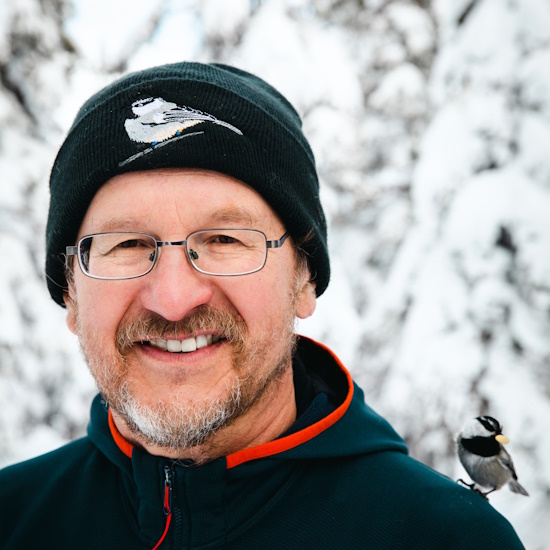
Professor Vladimir Pravosudov, University of Nevada, Reno, USA

Professor Vladimir Pravosudov, University of Nevada, Reno, USADr Vladimir Pravosudov is a Foundation Professor and a Trevor J. McMinn Endowed Research Professor in Science at the University of Nevada Reno, USA. Dr Pravosudov received his MS degree in Zoology at the University of Leningrad in Russia and his PhD in Zoology at the Ohio State University in the US. Using food-caching Parids as a model, Pravosudov’s research investigates spatial cognition associated with food caching behaviour and the hippocampus, a brain region involved in spatial learning and memory. Food-caching parids rely on numerous food caches scattered throughout their home ranges to survive winter and have specialized spatial cognition needed to recover these caches. Current research in Pravosudov’s lab uses wild chickadees in their natural environment and focuses on (i) fitness consequences and the genetic basis of individual variation in spatial cognitive abilities to understand how environmental variation can contribute to the evolution of spatial cognition, (ii) potential trade-offs between specialized spatial memory and cognitive flexibility. |
| 15:55-16:10 |
Proximate mechanisms underlying the coevolution of diet quality and relative brain size in primates
Many primates, including humans, have evolved brains that are surprisingly large relative to their body sizes. Studies of this variation have focused on either proximate (“how”) or ultimate (“why”) explanations by correlating species-average brain sizes with e.g., the rate of genetic changes or certain socioecological variables, respectively. Here, we combined proximate and ultimate perspectives to identify genes that modulated the co-evolutionary relationship between diet quality and relative brain size in primates. For N=52 species, we estimated root-to-tip dN/dS for ~8K genes and collected brain size, body size, and diet quality data. We then applied phylogenetic partial correlation analysis (to identify genes correlated with both brain size and diet quality) and phylogenetic path analysis (to compare different causal models). We identified N=14 genes that: i) show significant (p<0.05) and concordant (in the same direction) partial correlations with both brain size and diet quality; ii) are best fit to a causal model in which diet quality has direct and indirect (via body size and dN/dS) influences on brain size (for 8/14 [57%] genes, this model had the lowest CICc value); iii) are enriched for lipid metabolism (padj=0.02); and iv) are linked to human microcephaly (AARS1) and megalencephaly (AKT3). These findings are consistent with the fact that, after adipose tissue, brains exhibit the highest lipid content, and suggest that higher quality diets – which include more fats – facilitated the evolution of larger relative brain sizes in some primates lineages via alterations to fat metabolism. 
Dr Alex DeCasien, National Institute of Mental Health, USA

Dr Alex DeCasien, National Institute of Mental Health, USADr Alex DeCasien is an evolutionary neuroscientist, biological anthropologist, and computational biologist whose work illuminates the proximate and ultimate drivers of within and between species variation in primate brains. After receiving their PhD in Biological Anthropology from NYU in 2021, Alex joined the Section of Developmental Neurogenomics at the NIMH as a postdoctoral fellow. Their current research involves: i) characterizing normative multi-omic age and sex differences in human brains; ii) linking these differences to disease mechanisms; and iii) comparing these patterns to those observed in other species. |
| 16:10-17:00 |
Panel discussion
|
